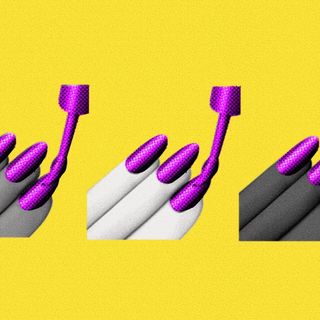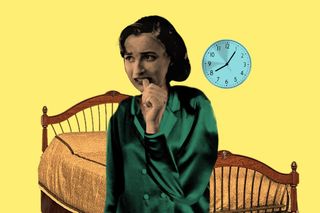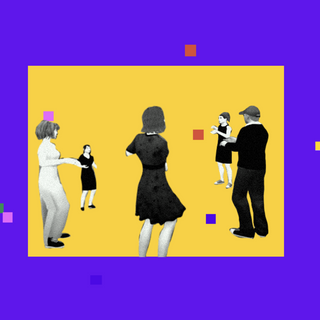
Is This Normal? ‘I Always Wake Up Embarrassed About Oversharing Every Time I Socialize’
Anxiety and loneliness are, more often than not, strong driving forces behind oversharing at social gatherings.

In this series, we dig into our strange phobias, fixations, and neuroses, and ask ourselves — Is This Normal?
I overshare; it’s a fact. At a house party last month, I discussed intimate details of my sex life with people, some of whom I was meeting for the first time. Of course, I woke up the next morning with debilitating embarrassment. Unfortunately, this is a recurring theme. Almost every time I socialize, I overshare, only to feel mortified by my own actions the next day, and ask my partner: “Did I embarrass you last night? Did I humiliate myself? Are you sure you aren’t ashamed of me?”
As I continue looking for ways to break out of this cycle, I’m forced to wonder: is this normal?
“I know I’m not the only person who overshares,” writes Elizabeth Bernstein in The Wall Street Journal. “We often regret our disclosures, feel like an idiot — and then worry even more about what the listener is thinking. We may feel compelled to “fix” the situation, leading to — you guessed it — even more blabbing. It’s a cruel downward spiral.”
Having interviewed experts, Bernstein came across an explanation behind “blabbing your business,” as she refers to it. “[O]versharing often happens when we are trying subconsciously to control our own anxiety… When having a conversation, we can use up a lot of mental energy trying to manage the other person’s impression of us. We try to look smart, witty, and interesting, but the effort required to do this leaves less brain power to filter what we say and to whom. This explains why people often blurt out embarrassing things to precisely the people they want to impress most, whether it’s the boss, a first date, or a future in-law.”
Related on The Swaddle:
Why the Trend of ‘Trauma Dumping’ On Internet Strangers Needs to Go
While anxiety is, more often than not, a driving force behind oversharing, using up brain space isn’t the only way it causes people to divulge more details than necessary. Clinically anxious individuals are often overly sensitive to rejection, too. So, during a conversation, if they feel the interest of the other party starting to wane, they might try to rekindle it by dropping intimate details about their lives. “If you are psychologically aware, you will realize you are feeling anxious and picking up rejection cues… You’re trying to reestablish connection,” explains Hal Shorey, a psychologist.
It’s this feeling of inadequacy that also prompts people who struggle with low self-esteem to share a lot more than they probably intended to.
The attachment theory, which explores the different ways in which we bond with others, explains yet another consequence of living with anxiety that manifests as oversharing. The attachment styles proposed within the framework of this theory include secure, anxious, avoidant, and disorganized. And individuals with an anxious attachment style — who fear abandonment and rejection in relationships — are also prone to oversharing in a bid to fast-track the relationship.
This is also why individuals who feel far too lonely far too often — which points to a rather large section of the population, given that we’re presently caught amid a chronic loneliness epidemic — may be prone to oversharing, too. Starved for social connection, people often use oversharing — often, subconsciously — as a means to create new bonds by escalating depth and emotional intimacy, which they believe will steer the relationship to the next level. Past research suggests that people tend to overshare more as they age; interestingly, studies have also shown that people get lonelier as they age — suggesting that there might be a correlation here.
Related on The Swaddle:
Why Trying To ‘Control’ Your Partner Into ‘Opening Up’ Doesn’t Work
Perhaps, my neurodivergence, too, plays a role in my oversharing. “An oversharer may also not have a good ‘internal censor. In these cases, they may not have an ability to ‘read’ their audience; typically, they do not have a good sense of boundaries,” Gary Brown, a relationship therapist, told Mic. My autism can ADHD not only lead me to struggle with boundaries, but also make me impulsive, causing me to overshare often.
Further, living with a disability can make it difficult for people like me to connect with a neurotypical, able-bodied crowd, resulting in a pervasive sense of loneliness. Not only that, my sensory dysregulation prevents me from socializing as often as I’d probably like, too. Together, the loneliness and isolation may drive me to expedite social connections through oversharing.
Moreover, due to my social anxiety, I find it extremely challenging to engage with people at social gatherings without relying on alcohol, which has the added benefit of numbing my senses, allowing me to keep the inevitable sensory overwhelm at bay while I socialize. But, regrettably, we know that alcohol “makes people feel less inhibited and more confident, and serotonin, which induces a feeling of warmth and openness.” Oversharing is a natural consequence, then, in these circumstances.
However, oversharing isn’t the worst social faux pas to commit; in fact, it can, on occasion, be a good thing. “If it is used right, oversharing can be a powerful tool to help you open up and connect with like-minded individuals… You will [also] feel quite validated when you share personal struggles, and someone reaches out to you to tell you about how they feel, to tell you a similar story, or how it allowed them to honor their feelings. This will often be the reason someone will share a raw take on their past. Bringing joy or comfort to others with tales of your own traumas is rewarding for some,” explains an article.
Understanding why I — and many, many others — overshare is certainly relieving. And, hopefully, this Christmas, it’ll also allow me to navigate social situations with greater awareness.
Devrupa Rakshit is an Associate Editor at The Swaddle. She is a lawyer by education, a poet by accident, a painter by shaukh, and autistic by birth. You can find her on Instagram @devruparakshit.
Related


Did We Get the Nepotism Conversation Wrong?
